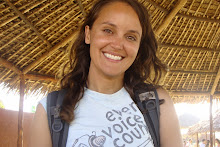
I had a chance last year to stay during winter months changing into Spring in a cozy place in NYC. I felt the warmth of the place, sheltering me at times from the snowy outside-- when it did snow, I would safely watch from within---and yet the intense cold outside was a stunning exhilaration as well. I became better friends with all that were staying together, and when the time to leave came, we joked and said that it was as if we were now leaving the nest. Katchi birds. Katchi being the Korean word for together (and I had been with one of our hosts in Korea, though she is fluent in Korean, that was about the only word I learned. Katchi. Together. And I loved it.) It was time for the birds to fly. We had to leave the warmth, the rest, the security and do the proverbial flying away. What was at stake? Not flying. Not knowing the feeling of the next new experience. What is it about us, that believes somewhat deeply that we were created to fly-- why is that a common thread in our subconsciousness that seeps into some of our dreams when we sleep? Perhaps there was a time when man and woman could fly.
As, I start this blog-- on home, the nest is a part of something Christ is recorded as saying and when I first heard someone repeat it, it spoke of how my life would be for a time. "Foxes have holes and birds have nests, but the Son of Man has no place to sleep." No home, house--- white picket fence to point to. I was in college when I heard it, and I thought intuitively that will be me as well. Christ was displaced, perhaps from Heaven, perhaps from eternity, but also quite literally traversing on foot under a middle eastern sun, catching the fish to eat, hoping to share bread and wine with friends. Yet, there seems to be a three year period of his life when he had no where to rest, to call home. Perhaps, he was prophetically experiencing solidarity with the world we live in. A world where its quite normal to be in exile, a refugee, an orphan. Displaced. What does it mean to have 34 million refugees? 80 percent of whom are women and children. Refugee is one seeking asylum or a sanctuary, perhaps a sacred space to be an eco-system to nurture survival, and beautiful life. What does it mean for sub-saharan Africa by 2010 have 42 million orphans?
Perhaps, home and hospitality are meant to be more than cooking. Perhaps hospitality is simply bringing the stranger in. Perhaps hospitality is helping the person outside of a home, come inside...outside of a conversation, be a part of the conversation, outside of friendship be a part of community, outside of nations--- have a place to call home. Jesus tells a parable about a shepherd who sees a lamb that it his and that was lost; and he goes and leaves everything else to get the one--- the one person... but in this case, it is a lamb and he says, he takes the lamb and carries it on his shoulders and brings the lamb home. I think we have a change to create home in small ways---in small transitions through out our days... welcoming the world around us.
As for myself, I know of a woman who felt that Jesus told her that she would always have enough--- enough bread to feed children with, enough clothes for orphans, that she would have enough--- as she started with one, and another one, and another. She now takes care of 7000 orphans in Mozambique. But perhaps it started by creating a little nest in the world for children to call home.


3 comments:
WOW awesome job Q!!!!
Hey there,
I love your blog, the deep reflectiveness of it. I have thought about 'home' many times as well, and also about adoption and the concept of 'orphan' and where God meets that.... It's a warm cup of coffee to read someone else's pensive comments about such things....
--Amanda
I am excited to begin this amazing journey to home...to bring people home.
Post a Comment